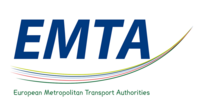
Born from the merger of Ternienergia, and Softeco, with over 200 employees located in 7 offices in Italy, algoWatt designs, develops and integrates solutions for the management of energy and natural resources in a sustainable and socially responsible way. The Company provides management and control systems that integrate devices, networks, software and services with a focus on digital energy and utilities, smart cities & enterprises and green mobility. algoWatt invests about 10% of staff resources and annual turnover in Research & Innovation which is considered the key to the development of high-tech products and to transform innovation into business.
algoWatt is the INCLUSION Project Coordinator, with the overall responsibility for the coordination and liaisons with the Commission. Together with the project management bodies, AlgoWatt has constantly worked to ensure a smooth organization of the project activities, high-quality results and solid contributions to the objectives and challenges of the project call. The achievement of all project objectives and the smooth coordination has been possible thanks to the excellent composition of the consortium and the high commitment of all partners.

BKK Centre for Budapest Transport was established in 2010 with a wide scope of tasks covering the different transport sectors. Within the governance model of Budapest, BKK is located between the local government and transport operators. All strategic, development, management, ordering and control functions are being integrated into the organization, ensuring balanced and diversified financing in line with the set priorities.
Budapest is an important hub of Central-Eastern Europe and the 9th largest metropolitan area of the European Union, with 1.75 million inhabitants and an extensive public transport system. The targeted area is the track-bound service (metro and tram) of Budapest. Budapest has a 39 km long metro network on four lines and one of the greatest tram network in Europe, which has been extended in 2016. Providing equal transport services for all is key priority, however the metro and tram networks in Budapest are currently not accessible for everyone.

BusItalia - Sita Nord (BusItalia) is the largest Italian public transport (PT) operator, owned by National Railway Service Group society. BusItalia manages mainly the Public Transport services (bus and alternative systems) in many areas and regions located in North and Central Italy.
The PT services (based on different modalities and schemes from conventional to flexible ones) are operated directly or by the managing companies in urban, district, intercity and rural areas of Tuscany, Umbria, Veneto and Campania regions. Through INLCUSION, ATAF Gestioni, as a third party, will support BUSITALIA in all the activities related to coordinating all the local activities for pilot setup and operation.

BusUp will participate in the Pilot lab located in the Metropolitan Area of Barcelona. The addressed target groups of this pilot include either (1) regular commuters in peri-urban areas or (2) leisure travelers attending events in areas with low traditional PT (i.e. music festivals, football matches, field trips, etc.). The main goal is to be able to offer these targeted groups an alternative mode of transport that is more affordable and sustainable than a car.
BusUp’s goal is to to improve the on-demand bus service offering and increase the number of passengers served. By doing so, BusUp expects to be able to offer an alternative, more affordable and sustainable solution to the groups of users whose current transport alternative is the car.

European Metropolitan Transport Authorities (EMTA) is an international platform for collaboration of organising authorities and agencies in European cities and metropolitan areas endowed with legal competences to commission public transport services on a metropolitan level. The common denominator is the responsibility to contract (by tender or franchise) public services for transport and planning, coordinating and financing mobility and provide for integrated local transport services including planning of dedicated PT infrastructure. EMTA members exchange knowledge and share best practices to foster a high-quality network of integrated mobility services in the most effective, economically responsible and environmentally sustainable way.

The Highlands and Islands Transport Partnership (HITRANS) is one of seven statutory regional transport partnerships in Scotland. HITRANS region covers most of the Highlands and Islands of Scotland and represents approximately half of Scotland’s landmass, but is home to less than 10% of Scotland’s population. This means that in many respects the area is outward focussed in economic terms and is very reliant on optimising transport and communication links.
HITRANS role is focused on the delivery of integrated, multi-modal transport solutions, working with both public and private sector partners to deliver a Regional Transport Strategy. HITRANS have delivered initiatives which have made significant transport improvements including major projects, bus improvements, access to healthcare improvements, active travel and information improvements. HITRANS are well placed to test and deliver a wide range of transport solutions that bring immediate benefits to isolated and remote rural communities that will fulfil social inclusion objectives as well as achieve environmental benefits.

For over 25 years MemEx has been providing high level, technical consultancy services, supporting Public Authorities and Transport Operators in designing public transport solutions, in developing strategies for Urban Mobility Planning and Management, in implementing and testing Intelligent Transport Systems (ITS) for Public Transport and Mobility Governance.
MemEx’s team is composed of a technical department - in charge of research and innovation, analysis of user’s requirements for innovative mobility and transport solutions, network modelling, planning of integration of Public Transport with feeder services, analysis and implementation of technological solutions and “on-field” technical activities – and of an administration and communication department.

MOSAIC is an SME specialized in data driven innovation in Mobility of people and goods, with a strong focus on data sharing and all related issues and opportunities. MOSAIC was created in the spring 2016 and since then, has been involved in multiple European, national, company research and innovation projects.
Use of information scrapping and dynamic services to detect a particular interest of target groups of the population, allowing the companies providing customised mobility services to these specific subgroups.

Polis is a network of European cities and regions working together to deploy innovative solutions for more sustainable mobility. Polis fosters cooperation and partnerships across Europe with the aim of making transport research and innovation accessible to cities and regions. The network aims to improve local transport through integrated strategies that address the economic, social and environmental dimensions of transport. The Network is and has been involved in numerous EU projects on urban transport and mobility.
Polis is in charge of the whole communication, dissemination and innovation management of the project. Being a network of European cities and regions (including non-EU members) Polis will bring a wide and solid experience on existing mobility services and strategies while enlarging and enforcing the contacts with external stakeholders, cities and service providers for a broad analysis and dissemination. Polis will also provide linkage with other organizations and Stakeholders while contributing to the analysis of studies. Polis will also be involved in the identification and validation of outcomes of the case studies also with linkage to external forums, organizations and stakeholders.
Rupprecht Consult – Forschung & Beratung GmbH is a fully independent research and consultancy company based in Cologne, Germany. The company employs 13 internationally-experienced consultants who work on sustainability in the fields of sustainable urban mobility planning, environment, information technologies and innovations to society. Its main services are targeted to cities/regions and international organisations and include project development and management, evaluation and assessment of project impacts, dissemination, capacity building, development of learning activities, strategy development, and independent project monitoring.
Rupprecht leads ‘Inclusive mobility options: Identification and critical assessment’, in which 50 case studies on good inclusive mobility practices will be identified, studied and analysed – 10 of which will involve in-depth investigations and field trips. Rupprecht will identify patterns and transferability, as well as a typology and description of underlying principles and generalisable lessons. Rupprecht also leads the task on qualitative process evaluation, working closely together with partner UNIABDN to assess the transferability of the impact and process evaluation findings at European level. Rupprecht has a supporting role in several other activities and will act as support partner for VRS (Pilot Lab) in their user needs analysis.
Taxistop is an NGO with a mission “Share to Impact”. Taxistop enables solutions for sharing: ride-sharing and bike-sharing, and on-demand transport for the elderly. Taxistop aims to have an economic, social and environmental impact. Taxistop is operating in three Belgian regions: Flanders, Brussels and Wallonia. More precisely, Taxistop constitutes two different entities: Taxistop asbl (Brussels and Wallonia) and Taxistop vzw in Flanders.
Taxistop’s objectives for providing more accessible and equitable travel solutions include: 1) increasing the efficiency of the service by rolling out a mobile web application for the drivers: This should make it possible to organize rides without the intervention of the local municipality. 2) enlarging the target group. Today, this service is mainly dedicated to elderly people (with reduced mobility) with an income lower than twice the minimum wage.

The Verkehrsverbund Rhein-Sieg GmbH (VRS) is a German public transportation association, located in Cologne, Germany. Founded in 1987, the VRS bundles unique tariffs and coordinated time-tables of the whole PT in the Rhine-Sieg region, which includes around 75 communities and cities, around 500 buslines, 24 railway and 19 tram lines. More than 3.4 million inhabitants of whom more than 1.6 million persons use daily the PT in the VRS. Beyond the basic offers to the customers like busses, trams and trains, today’s proposal for using the PT in the VRS is widened from bike-rental to TaxiBusses, from Pedelecs to car-sharing. The VRS coordinates and organises all communication with the customer. Additionally, the VRS conducts via its department mobility management measures according to the needs of special groups like families, disabled persons or elderly people. The VRS is the leading department at the “Zukunftsnetz Mobilität NRW” which advises communities and municipalities in Northrhine-Westphalia on their way to reduce individual car use and increase PT, walking, and cycling.
The Centre for Transport Research (CTR) at the University of Aberdeen is a joint research centre of the Schools of Engineering and Geosciences, and acts as the focus for transport research at the University. CTR specialises in the sustainability of transport systems with emphasis on environment, society and technology. The Centre applies an inter-disciplinary approach to research and knowledge exchange, drawing on expertise from a multitude of areas. Recent research has been sponsored by the Research Councils in the UK, UK Energy Research Centre, European Commission, the Department for Transport (DfT), Scottish Government and consulting firms. Activities in Intelligent Mobility range from understanding the requirements of users, to the development of new technologies, to measurement of impact. CTR staff are currently participating in several EC-funded projects: the H2020 Mobility for Growth SocialCar project, the Green Vehicle ESPRIT project and CIVITAS PORTIS.
UNIABDN is in the lead with regard to the identification of candidate business concepts and solutions for the promotion of accessible and inclusive mobility in prioritised areas. It is also responsible for delivery of an Ethics Plan to manage ethical and society issues, gender aspects, and define the ethical procedures to be followed during project execution.